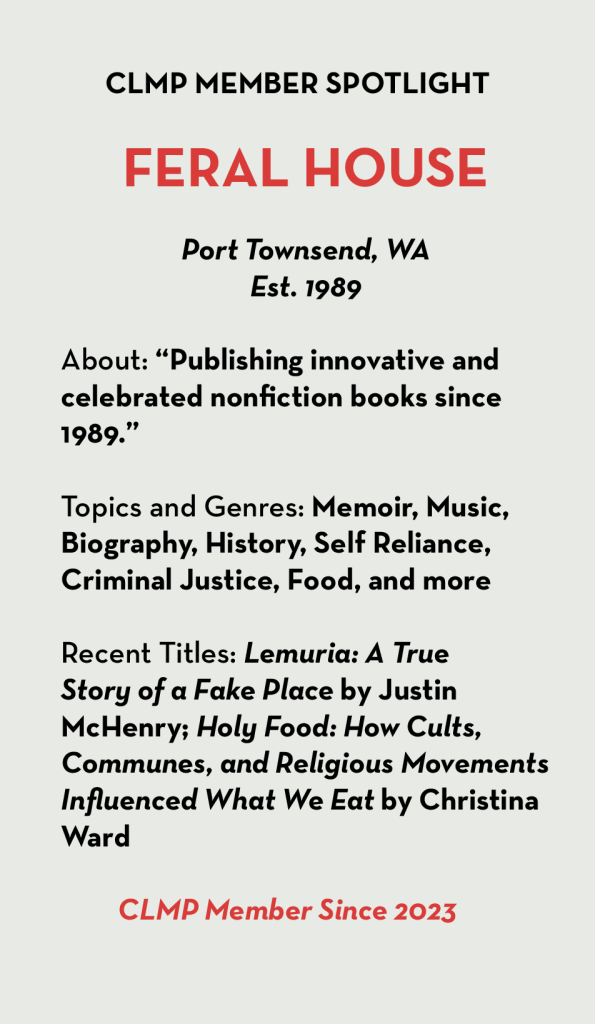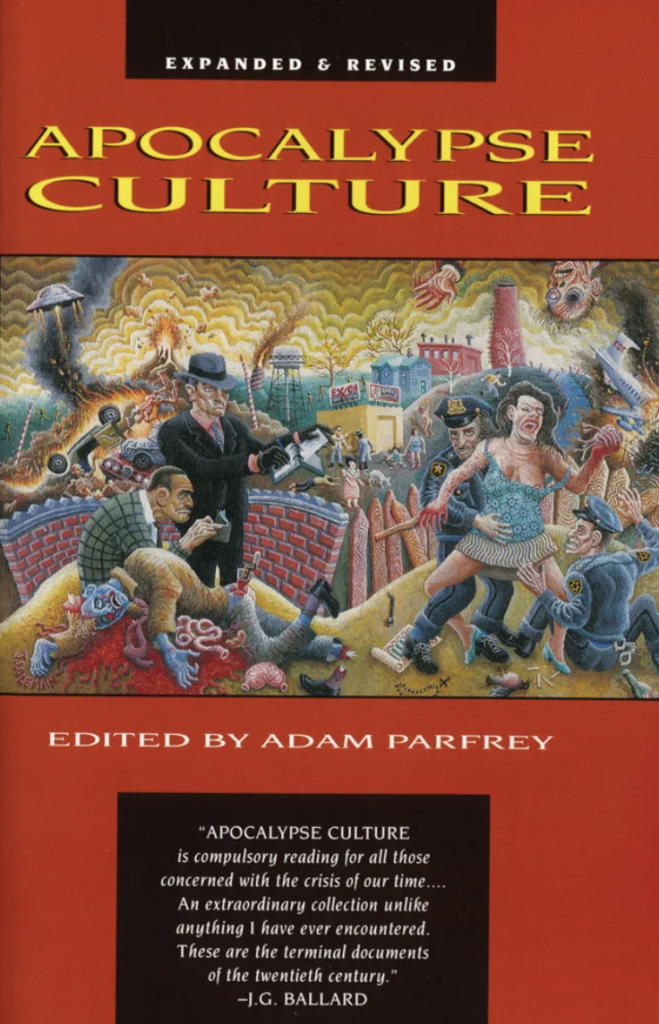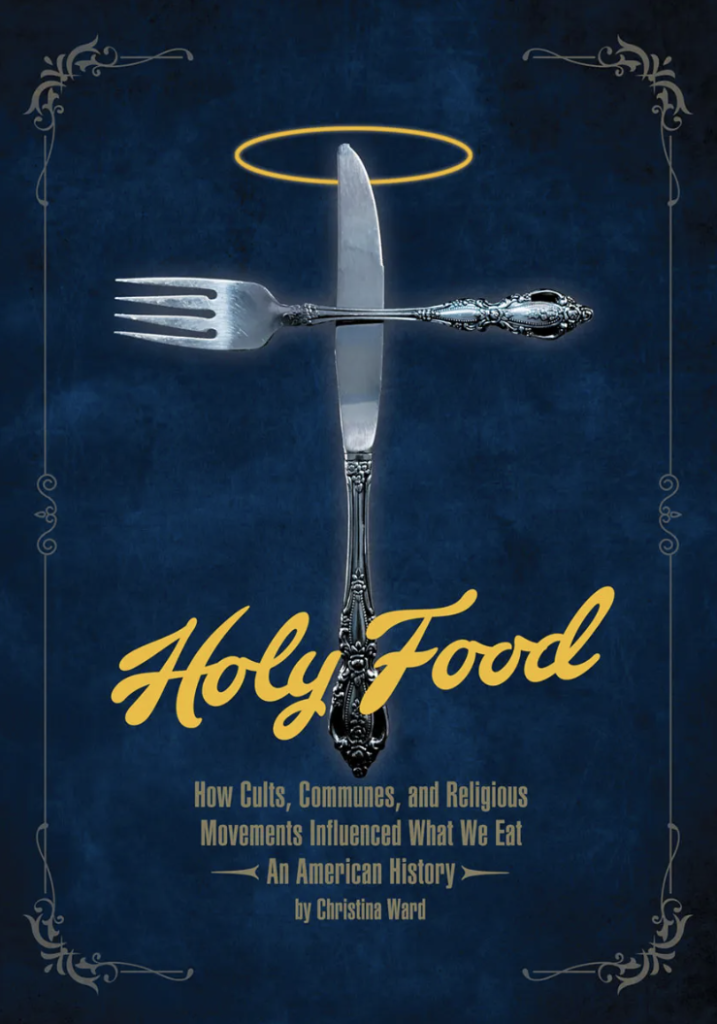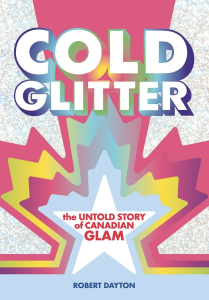We spoke with Christina Ward, the vice president and editor of Feral House, in our latest Member Spotlight.
 What is the history behind Feral House? When was it founded and what is its mission?
What is the history behind Feral House? When was it founded and what is its mission?
Feral House began in 1989. It was founded by journalist, writer, and cultural provocateur Adam Parfrey. Our very first book, Parfrey’s Apocalypse Culture—which was published by Amok Press (founded by Parfrey and Ken Swezey) in 1987 and reprinted by Feral House in 1990—set us on our path of publishing innovative, unexpected, and thought-provoking nonfiction. At Feral House and our imprint, Process Media, we continue to seek out and publish distinctive voices and esoteric topics.
At our core is a belief that transgressive writing is an important part of the larger publishing ecosystem. I use the term transgressive, though it’s often (and purposefully) misunderstood. Transgressive writing is inherently political, as it reveals non-mainstream viewpoints; those viewpoints shift over time and as the culture changes, so what was transgressive in the nineties is no longer so. We are modernists who often look to the past to reveal our collective future.
We also publish many music-related titles that fall under that “outsider,” transgressive label.
Our first music title was the 1995 book Loser: The Real Seattle Music Story, which was a deep, insider account of the bands that came to define grunge. But the music book that really made a mark was 1998’s Lords of Chaos. Both titles set the template for Feral House’s music publications—firsthand stories from creators and deeply researched explorations of under-valued yet significant and influential artists and genres.
 What inspired the decision to exclusively publish nonfiction?
What inspired the decision to exclusively publish nonfiction?
There was in 1989, and remains today, a dearth of non-academic, trade publishers devoted to exploring nonfiction topics. It’s daunting for authors to research and write nonfiction, and we feel that our books, often the product of determined obsession by a writer, deserve a place in the public discourse. Readers should have access to new and challenging ideas absent the mandarin language of academia.
We also publish memoirs, but we are quite picky about what type of memoir. We look for extraordinary stories of unique lived experiences; I recommend our recent memoir Tomorrow, Tomorrow, Insha Allah, which is the first book written by a Saharawi woman published in the United States.
 How are Feral House and “sister press” Process Media related? Can you tell us about forthcoming titles from each?
How are Feral House and “sister press” Process Media related? Can you tell us about forthcoming titles from each?
Process Media was started to showcase what we call “less Feral” titles as, sadly, many industry and media outlets tend to equate the books we publish with who we are. Process has become the home to our popular Self-Reliance series of books that focus on specific skills, like food preservation, urban homesteading, and more. Process Media has expanded to include more food-related titles, including cookbooks and food history. We’re very excited about growing this segment of our publishing program.
Most recently, Process published Holy Food: How Cults, Communes, and Religious Movements Influenced What We Eat, which has received great critical attention and buzz in the food community. Coming next spring is Laura Flanagan’s Hardcore Vegetarian, a cookbook focused on introducing vegetarianism to folks outside of food culture.
Other Feral House titles we’re working on include Cold Glitter: The Untold Story of Canadian Glam by multi-hyphenate artist Robert Dayton; Mia Zapata and The Gits: A True Story of Art, Rock, and Revolution by Gits drummer Steve Moriarity; Apocalypse Omnibus, which is a collection of Adam Parfrey’s journalism and long-out-of-print essays; The Real Story of Dinosaurs and Dragons: Science Sets the Fossil Record Straight by paleontologist and professor Phil Senter (a dinosaur book for adults that blows creationist nonsense to bits); and finally for 2024, Education of an Anarchist by anarcho-primitivist philosopher John Zerzan. And there are more books already in production for 2025 and beyond.
 On your About page, you describe Feral House as “often the first and definitive source for documenting cultural movements.” What do you mean by this? What are some examples?
On your About page, you describe Feral House as “often the first and definitive source for documenting cultural movements.” What do you mean by this? What are some examples?
Apocalypse Culture is a good example. The collection of essays and profiles of eighties-era neo-Nazi movements, extremists, and marginal culture were considered outrageous in 1987… yet today, fascism is accepted as normative in the Republican party and in many laws enacted since then. The profiles of folks like Angelyne and Mr. Awesome were written in high-snark style, yet predict the current influencer-famous-at-any-price culture endemic today.
And while Feral House has been criticized for fostering conspiracy culture, we feel that critique is lazy and banal, made by those who are essentially blaming the messenger because they don’t like that controversial ideas exist. Have we grown so precious that we cannot bear something that we don’t 100% agree with? How does a society evolve if we are ignorant of history and abhorrent ideas? Feral House is a canary in the cultural coal mine.
Feral House also has a long history of our books being adapted into documentary and fictionalized films. Tim Burton based his movies Ed Wood and Big Eyes on our books Nightmare of Ecstasy and Citizen Keane, respectively. Jonas Akerlund made Lords of Chaos in 2018, nearly twenty years after the book of the same title was released.
Our current and most recent titles explore American metal music, women in punk rock in the seventies and early eighties, the influence of cults on American food culture, the history of how poor Madagascar became the locus of New Age woo, a challenging and in-depth exploration of murder ballads, biographies of forgotten queer leaders and artists, a memoir from an afro-punk founding father… the list goes on! Again, this goes back to what I said about the nature of transgressive writing—it’s not static. What we’re transgressing against changes as our culture and society changes.
What are some other presses, literary journals, and organizations you admire that also publish “esoteric interests and distinct voices”?
Feral House is not a nonprofit; we are solely funded by book sales and don’t have the support of grants or donors. The presses we admire are the ones that share our mindset and conditions. V Vale, of Re/Search, is a fellow traveler. I’m a fan of CLASH Books; Christoph and Leza are doing great work fueled by coffee, magick, and chutzpah, and I was happy to introduce them to Consortium, which is now their distributor. Bazillion Points is an incredible example of a publisher with singular focus that earns success by ignoring the industry. HoZac Books is another “doing it their way” publisher I like. As you can tell, we admire folks who, like us, are for-profit and have a vision for their house.
How can interested writers submit their work to Feral House?
I love working with working-class and first-time writers, with writers who’ve privately honed their voice while working 50 hours a week to keep food on the table. Lack of an MFA, or any degree, should never prevent a person from writing a book. I also love working with disaffected academics who want to write about the thing they could never get approved by a doctoral committee.
Feral House is considered a traditional publisher, meaning that we pay royalties and small advances. We have a policy of open submissions, and we rarely work with agents. Anyone interested in submitting should check out the About page on our website, as it lists our requirements (not many!), and email us at [email protected] to tell us about the weird thing you’re obsessed with, because that makes for a great Feral House book.
But for the love of dogs, don’t send us your poetry!

